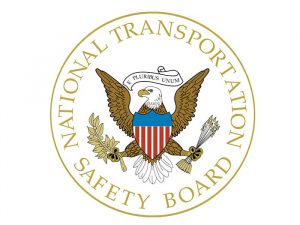
USCG won’t enforce controversial CARB CHC regulation
Written by Nick Blenkey
The California Air Resources Board (CARB) continues to get push back on a commercial harbor craft (CHC) regulation slammed as “unworkable” and “deeply flawed” by the American Waterways Operators (AWO), even before they went into force. AWO noted that, among other things, the CARB CHCn regulation mandates engine technology that is not available and is not certified as safe by the U.S. Coast Guard.
One of those technologies is the diesel particulate filters (DPFs) called for by the CARB regulation. In a letter to CARB obtained by Politico authored by Rear Admiral Andrew M. Sugimoto, Eleventh District Commander, he emphasized that the USCG continues to have “concerns about the feasibility and potential safety issues over DPF operating temperatures” and that “DPFs verified by CARB may not necessarily be accepted by the Coast Guard for installation on inspected commercial vessels.”
“It is the engine manufacturers’ responsibility to ensure that engine systems are approved and certified by the U.S. Environmental Protection Agency for marine use and the applicable emission requirements,” says the letter. “And while final approval for the installation or modification of any system on vital machinery is the responsibility of the cognizant Coast Guard Officer in Charge, Marine Inspections, Coast Guard inspectors wil not perform emission tests on vessels operating in U.S. waters to evaluate DFP system performance. Therefore, please note that the Coast Guard will not enforce California’s CHC Regulation.”
AWO WRITES GOV. NEWSOM
Last Thursday, AWO sent a letter to California Gov. Gavin Newsom on the CARB CHC regulation, urging him to “take immediate action to protect California’s harbor craft operators and coastal communities from untested and dangerous technology” and asking him to “rein in a state agency that is acting without necessary federal authorization.”
In that letter, AWO president and CEO Jennifer Carpenter notes that, “as of the date of this letter, CARB has not received authorization from the U.S. Environmental Protection Agency (EPA) pursuant to Section 209(e) of the Clean Air Act (CAA) to enforce this regulation. However, CARB has made it clear that it intends to continue to enforce the CHC rule deadlines without EPA authorization. This ill-advised position should be reconsidered not only for legal reasons, but also to protect mariner safety, the environment, and the California supply chain.
“The technical experts on which the USCG relies have not approved diesel particulate filters (DPFs) for safe use in towing vessels, and CARB has failed to take into consideration the repeated concerns about DPFs expressed by maritime and labor organizations.
“We are deeply concerned that CARB plans to require compliance with a regulation that would put vessels out of compliance with federal safety standards and place mariners and waterways at risk. There is precedent for delaying deadlines or enforcement due to safety issues or a lack of required federal authorization. CARB’s Truck and Bus regulation, which was the first to require vehicles to repower to the lowest emitting engines available and install DPFs, was quickly amended to extend compliance deadlines after the safety and feasibility of the technology mandates were called into question by several horrific truck fires. CARB also recently announced a delay in enforcement of the Advanced Clean Fleets rule because the EPA has not yet approved its requested CAA Section 209(e) waiver.
“In the case of the CHC rule, towing vessel owners are ten months away from the first major deadline, which is unrealistic when such drastic retrofits are needed to comply. In fact, should the necessary technology become commercially available, it will likely take more than a year to perform the required design and safety studies before bids can be solicited, materials procured, drydocks scheduled, and work completed. As there are only five drydocks in California that have the capacity to do retrofit work, and factoring in procurement delays due to supply chain interruptions, AWO estimates that, at a minimum, an additional 18 months will be needed. This assumes, of course, that a vessel owner has the approximately $5 million needed to retrofit each vessel.
- You can read that letter HERE
BROKEN AND DANGEROUS REQUIREMENTS
California Assemblymember Dr. Jasmeet Bains, MD, who has introduced state legislation on the CARB CHC regulation issue, commented:
“I share CARB’s goal to reduce air pollution from California’s ports. A lot of the dirty air from LA and the Bay Area blows into the San Joaquin Valley and contributes to the high rates of asthma amongst Valley kids. As a physician, I treat a lot of those kids in my clinic. But as a doctor, I also took the Hippocratic Oath to do no harm. Sometimes, we have to have enough common sense to realize when the medicine is worse than the illness. Endangering the lives of mariners, increasing the chance of oil spills off our coasts, and hiking the price of food and basic necessities by disrupting trade in our ports is not the right medicine.
“CARB is coming at this in reverse. The board adopted broken and dangerous requirements, and now it’s working backward to fix the problems it created. That’s the wrong strategy and it leaves the safety of mariners hanging in the balance. That’s why I introduced AB 1122 at the end of the legislative session last year to send a clear message that fixing these problems is not optional.
“This is a problem of the state’s own making, so I would welcome Governor Newsom’s intervention to ensure that CARB adequately prioritizes the safety of those who keep our ports and waterways flowing.”




